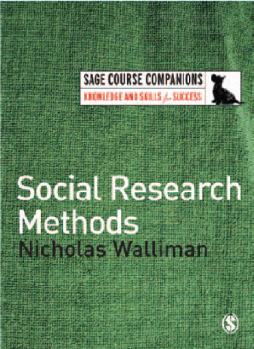
Additional Information
Book Details
Abstract
Designed to augment rather than replace existing textbooks for the course, Social Research Methods provides students with essential help in their research project, with revising for their course exams, preparing and writing course assessment materials, and enhancing and progressing their knowledge and thinking skills in line with course requirements on research methods courses.
Table of Contents
| Section Title | Page | Action | Price |
|---|---|---|---|
| Prelims (Figures, tables, boxes and photo credits, About the authors, Preface, MAP of the RIPAT project areas) | |||
| 1. Introduction | |||
| Helene Bie Lilleør and Ulrik Lund-Sørensen | |||
| PART ONE: RIPAT IMPLEMENTATION AND EVALUATION DESIGN | |||
| 2. Presentation of RIPAT – Core Components and project implementation | |||
| Catherine W. Maguzu, Dominick Ringo and Jens Vesterager | |||
| 3. Evaluation methods | |||
| Steffen Jöhncke and Ulrik Lund-Sørensen | |||
| PART TWO: EVALUATION STUDIES | |||
| 4. The Context for RIPAT taking regional history and development policy into account in the interpretation of project processes and success | |||
| Quentin Gausset, Steffen Jöhncke, Eva Kaas Pedersen and Michael Whyte | |||
| 5. The impact of RIPAT on Food Security and Poverty | |||
| Anna Folke Larsen and Helene Bie Lilleør | |||
| 6. Evaluation of the RIPAT Concept | |||
| Charles Aben, Deborah Duveskog and Esbern Friis Hansen | |||
| 7. Household Dynamics and Gender Politics: Female Farmers in RIPAT 1 | |||
| Hanne Mogensen and Eva Kaas Pedersen | |||
| 8. The RIPAT groups | |||
| Helene Bie Lilleør and Eva Kaas Pedersen | |||
| 9. Local adoption of social and agricultural technologies | |||
| Quentin Gausset | |||
| 10. Social constraints on the adoption of improved bananas in Arumeru District | |||
| Quentin Gausset and Anna Folke Larsen | |||
| 11. RIPAT, RECODA and Government Institutions | |||
| Charles Aben, Deborah Duveskog and Esbern Friis Hansen | |||
| 12. Summary and concluding remarks | |||
| Helene Bie Lilleør and Ulrik Lund-Sørensen | |||
| Back Matter (Glossary, Annexes, References) |
